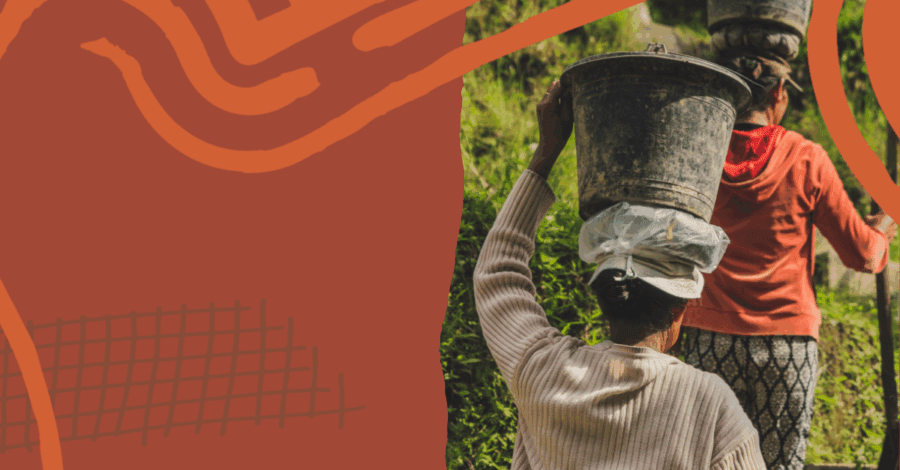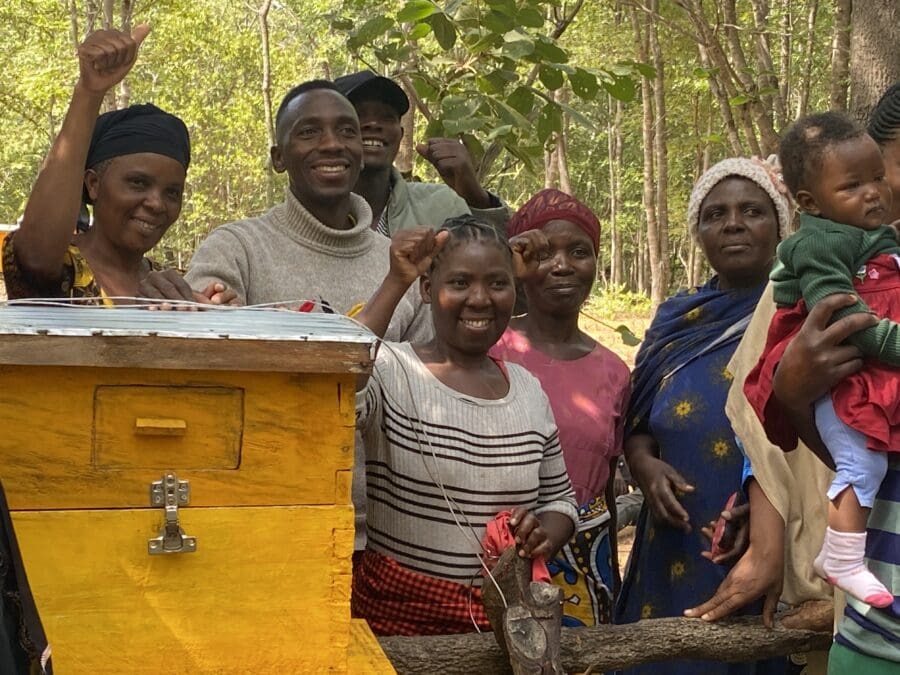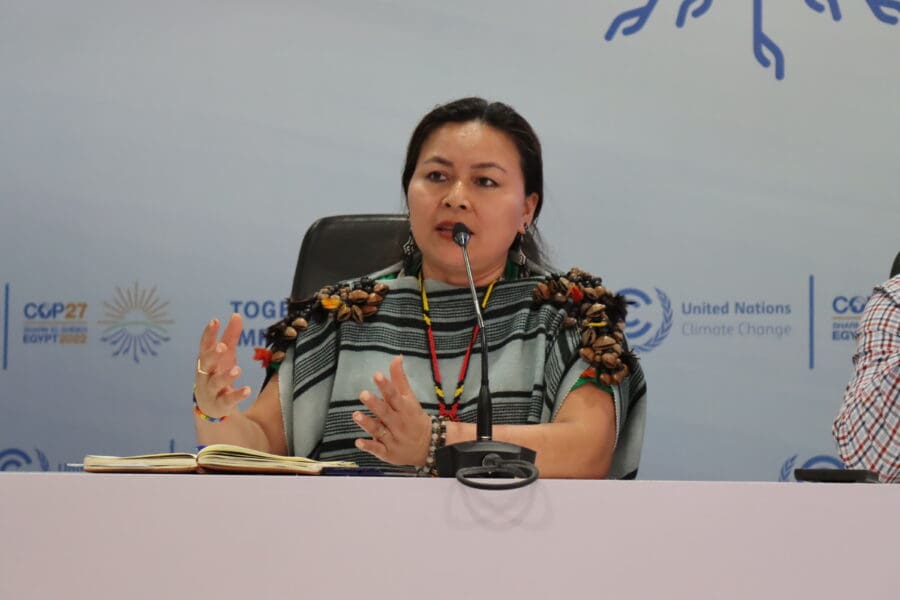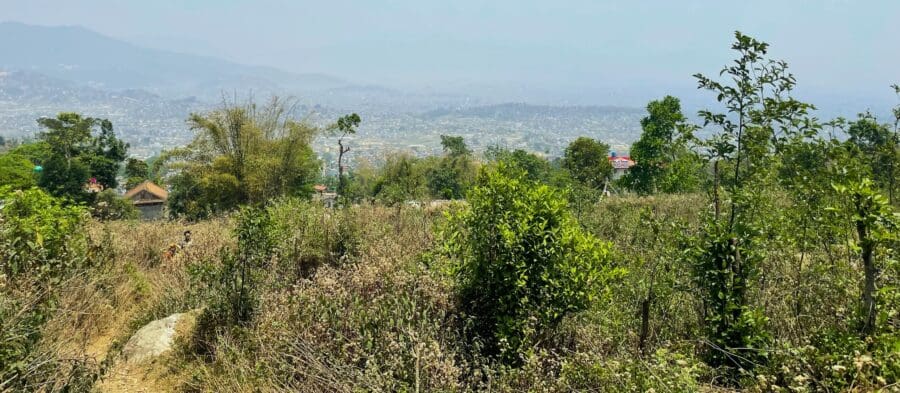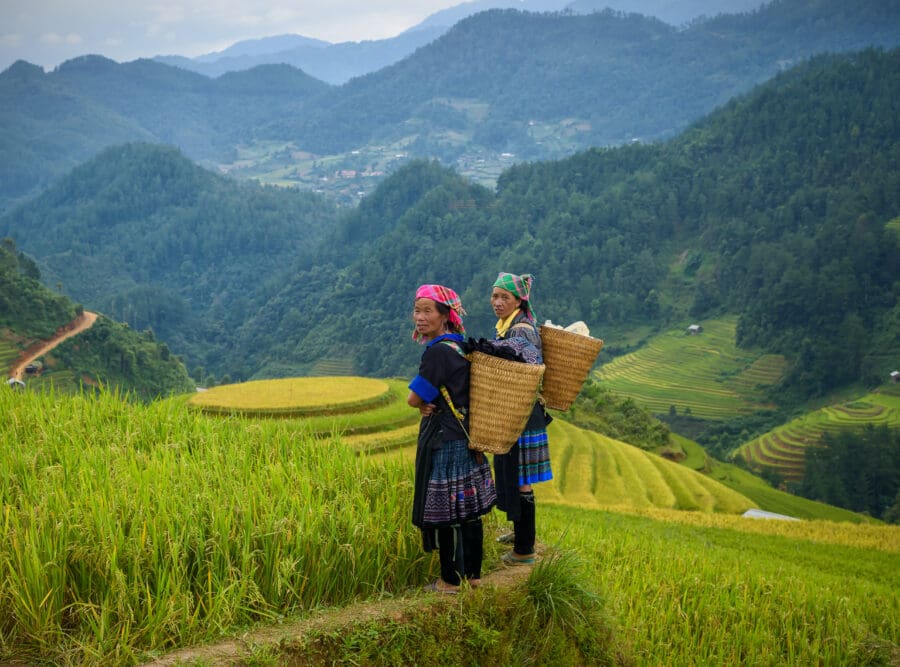Kathmandu, Nepal (June 30, 2025)—At its 20th anniversary celebration in Kathmandu, the Rights and Resources Initiative (RRI) announced the winners of its inaugural Collective Action Awards. The awards honor Indigenous Peoples, Afro-descendant Peoples, and local communities from Africa, Asia, and Latin America for their leadership in defending their collective land, forest, and resource rights.
A global coalition of over 200 organizations dedicated to advancing the forest, land, and resource rights and development of Indigenous Peoples, local communities, and Afro-descendant Peoples, RRI selected three winners from nearly 200 nominations and an inspiring group of 18 finalists.
The RRI Collective Action Awards are designed to highlight marginalized and underrecognized communities and leaders whose work exemplifies sustainable livelihoods, climate action, and cultural resilience. The three winners are:
From Africa: Nashulai Maasai Conservancy in the Maasai Mara Ecosystem in Kenya, for launching one of East Africa’s first Indigenous-owned and run conservancies in 2016. Created by Maasai landowners across eight villages, the conservancy was formed to reclaim and protect ancestral land from climate change, land commodification, and the exclusionary models of conservation that displaced Indigenous people. Rather than removing communities, Nashulai champions coexistence between wildlife, pastoralism, and human life by reviving Indigenous knowledge and combining it with innovative practices. The Conservancy has since evolved into a thriving ecosystem and cultural hub, fostering conservation, sustainable livelihoods, women’s empowerment, and cultural revival—all under Indigenous leadership. Learn more here.
“This award shows us that when communities work together, incredible things can happen,” said Nelson Ole Reiyia, CEO and Co-Founder of Nashulai Maasai Conservancy.
From Asia: The Jargaria Indigenous Community of the Aru Islands in Maluku Province, Indonesia, for its powerful grassroots environmental defense, particularly through the #SaveAru movement. Rooted in deeply democratic, customary governance systems, this Indigenous community has continually resisted corporate land grabs and environmental degradation since the 1990s. Their work culminated in one of Indonesia’s most iconic community-led conservation efforts in 2013–2015, when they mobilized nationally and internationally to protect over 500,000 hectares of forest. Learn more here.
“The award has breathed new life into our movement, encouraging the community to keep pushing forward with strength and hope,” said Rosina Gaelagoy, community leader.
From Latin America: Jupago Kreká Indigenous Collective from the Xukuru do Ororubá Indigenous People in Brazil, for the regeneration of their Sacred Territory in Brazil, which had been degraded since colonization. The Xukuru people, numbering over 9,000, regained their rights to 27,555 hectares of land in 2002. They focus on restoring the land through a biocentric approach, integrating food production with forest regeneration, preserving ancestral knowledge, and promoting the well-being of all life forms within their territory. The Jupago Kreká Sacred Agriculture Collective emerged as a key initiative within the community to restore the sacred territory, supporting environmental restoration, cultural revival, and sustainable livelihoods. Learn more here.
“We are very happy to receive this award. It inspires us to keep dreaming, believing, and continuing this project of life: to see our forest grow richer, stronger, and more resilient each day,” said Bela Xukuru, member of the Jupago Kreká Indigenous Collective.
The winners were announced during an awards ceremony held on June 30 in Kathmandu, co-hosted by RRI’s coalition members in Nepal and opened by Aain Bahadur Shahi Thakuri, Nepal’s Minister of Forests and Environment. Two representatives from each of the three communities shared powerful testimonies about their work, vision, and continued commitment to protecting their territories and traditional knowledge for future generations.
“These awardees are living proof that solutions to the global climate and biodiversity crises are already here,” said Dr. Solange Bandiaky-Badji, RRI President and Coordinator. “Rooted in ancestral knowledge and powered by collective action, their work offers a roadmap for the rest of the world. It is our deepest honor to recognize them today and help amplify their voices globally.”
These awards reflect RRI’s core belief that when local peoples lead efforts to protect their territories, drawing on generations of traditional knowledge, they create powerful, lasting solutions. Finalists and winners were selected by an external committee of global experts in land rights, Indigenous governance, and climate justice.
“The courage, wisdom, and innovation of these communities—along with the 15 other inspiring finalists—remind us that true leadership is found in collective stewardship,” added Peggy Smith, Chair of RRI’s Board of Directors. “These stories moved every member of the selection committee. We hope this award continues to spotlight the often-invisible efforts of communities who have cared for our planet far longer than any government or institution.”
This inaugural award marks a new tradition for RRI. Future editions will be informed by a community-led evaluation of this first cycle and will continue to center the voices and leadership of grassroots movements around the world.
NOTES TO EDITORS
- Each finalist will be supported through RRI’s global coalition through opportunities to participate in international climate, conservation, and human rights forums, capacity-building in storytelling and advocacy, and integration into RRI’s funding pipeline for CLARIFI, its international regranting mechanism to support projects led by Indigenous Peoples, Afro-descendant Peoples, and local communities.
- The 15 Collective Action Award Finalists include:
- Africa: Elgong Ogiek (Kenya); Community of Massaha (Gabon); Bashi Community of South Kivu (DRC); APAC Kollou Ndig (Senegal); and Batéké-Nord Community (DRC)
- Asia: Tsumba Community (Nepal); Lumad Community (Philippines); AMAN Bima Region (Indonesia); Indigenous Peoples of Adat Dalem Tamblingan (Indonesia); and Tiriya Gram Sabha (India)
- Latin America: Comunidad Achuar Sharamentsa (Ecuador); Potato Park (Peru); Pucayacu (Peru); Community Council of Afro-descendant Women of California Delpatia (Colombia); and Junta de Acción Comunal Vereda San Isidro (Colombia)

